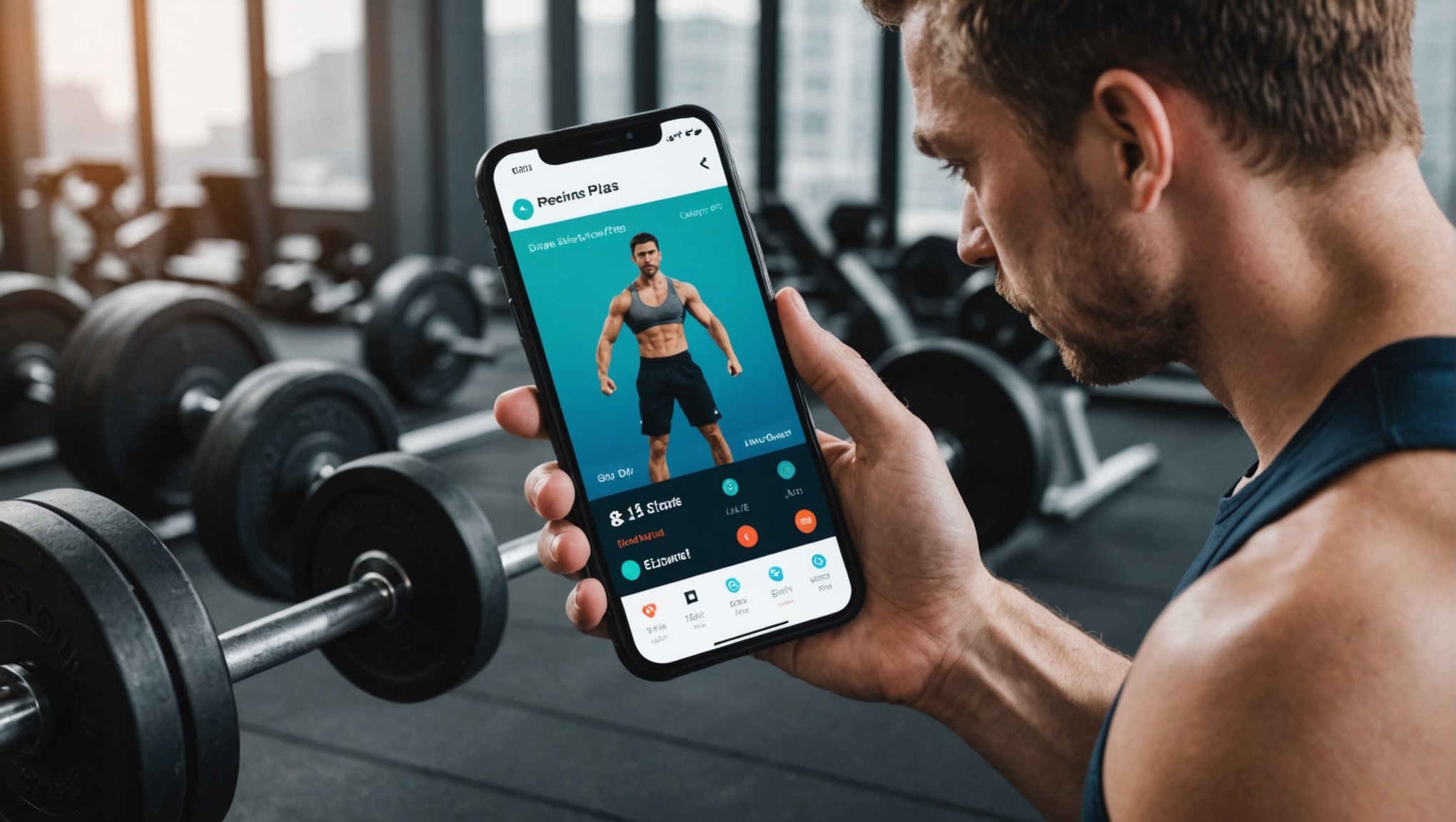In the ever-evolving fitness landscape, UK-based fitness apps are harnessing the power of Artificial Intelligence (AI) to provide users with personalized workout plans that are as unique as their individual fitness goals. The marriage of technology and fitness has transcended beyond simple step counters and calorie trackers, paving the way for more sophisticated, intelligent, and customization-driven fitness solutions. But how exactly can AI contribute to the personalization of workout plans? Let’s delve into the multifaceted capabilities of AI and how it can revolutionize the way we approach fitness in the UK.
The Evolution of Fitness Apps
In recent years, the fitness industry has seen a significant shift towards digital solutions. Fitness apps have become an essential tool for millions, offering convenience and accessibility that traditional methods lack. With the rise of AI, these apps are now evolving into highly sophisticated platforms that can cater to the specific needs of each user.
In parallel : How can UK-based educational institutions implement AI to improve remote learning experiences?
Artificial Intelligence has the potential to transform fitness apps from generic exercise libraries into personalized fitness assistants. By analyzing vast amounts of data, AI can help to create tailored workout plans that consider your goals, preferences, and current fitness level. This evolution is not just a technological advancement; it is a movement towards a more personalized and effective fitness experience.
For instance, AI-driven apps can adapt to your progress, adjusting your workout intensity and recommending new exercises as you improve. This dynamic approach ensures that you are consistently challenged and motivated, reducing the likelihood of hitting a plateau.
Also read : How can UK charities leverage AI to predict donor behavior and optimize fundraising efforts?
Moreover, AI can provide real-time feedback on your form and technique, helping to prevent injuries and optimize results. This level of personalization was previously only available through personal trainers, but AI is making it accessible to everyone.
In essence, the evolution of fitness apps through AI is democratizing personal training, making it more affordable and convenient for users across the UK.
Data Collection and Analysis
One of the core strengths of AI lies in its ability to collect and analyze large sets of data with remarkable precision. For UK-based fitness apps, this capability is crucial for offering personalized workout plans. But what kind of data is being collected, and how does it contribute to creating a tailored fitness experience?
Initially, fitness apps gather basic data such as age, weight, height, and fitness goals. AI algorithms then go beyond this superficial information by tracking your workout history, activity levels, and even biometric data such as heart rate and sleep patterns. This comprehensive data collection enables the AI to understand your fitness journey in depth.
The analysis of this data is where the magic happens. AI can identify patterns and correlations that might not be apparent to the human eye. For example, it can recognize that you perform better in the morning or that you tend to skip workouts on weekends. By understanding these patterns, AI can suggest workout schedules that align with your natural rhythms and habits.
Furthermore, AI can compare your data with a vast database of other users with similar profiles. This comparative analysis allows the AI to recommend exercises and routines that have proven effective for people like you. It’s a data-driven approach that increases the likelihood of achieving your fitness goals.
In summary, data collection and analysis by AI provide a foundation for creating workout plans that are not only personalized but also optimized for your unique needs and preferences.
Real-Time Feedback and Adjustments
A significant advantage of AI-powered fitness apps is their ability to offer real-time feedback and make adjustments on the fly. This dynamic interaction ensures that your workout plan remains effective and safe, adapting to your performance and progress.
Traditional workout plans often lack flexibility. They are static, failing to account for daily variations in your performance or external factors that might affect your workout. AI changes this by continuously monitoring your activities and making data-driven adjustments as needed.
For instance, if the AI detects that you are struggling with a particular exercise, it can suggest modifications or alternative exercises that target the same muscle group. Conversely, if you are breezing through your workout, the AI can increase the intensity to keep you challenged.
Additionally, real-time feedback can help you maintain proper form and technique. Many AI-powered apps use motion sensors or smartphone cameras to analyze your movements and provide instant corrections. This feature is particularly beneficial for beginners who might not be familiar with the correct form for various exercises.
Another important aspect of real-time adjustments is injury prevention. By monitoring your performance and identifying signs of fatigue or strain, AI can recommend rest or lighter workouts to avoid overtraining. This proactive approach ensures that you can continue working towards your goals without setbacks.
In essence, real-time feedback and adjustments make AI-powered fitness apps an invaluable tool for anyone looking to optimize their workout routine. By continuously adapting to your needs, these apps provide a highly personalized and effective fitness experience.
Motivational Features and Community Support
Staying motivated is often one of the biggest challenges in maintaining a consistent fitness routine. AI-powered fitness apps are designed to tackle this challenge head-on by incorporating motivational features and fostering a sense of community support.
Motivation can be a deeply personal experience, influenced by various factors such as your goals, preferences, and even your social environment. AI has the capability to understand these nuances and tailor motivational strategies that resonate with you on a personal level.
For example, AI can track your progress and celebrate your achievements by sending personalized congratulatory messages or rewarding you with virtual badges. These small tokens of recognition can have a significant impact on your motivation and drive.
Moreover, AI can identify periods when your motivation might be waning and intervene with timely reminders or encouraging messages. This proactive approach helps to keep you engaged and committed to your fitness journey.
Community support is another powerful motivator. Many AI-powered fitness apps offer social features that allow you to connect with other users, join fitness challenges, and share your progress. This sense of community can provide the encouragement and accountability you need to stay on track.
Additionally, AI can match you with workout buddies who have similar goals and fitness levels. This feature not only makes your workouts more enjoyable but also adds an element of friendly competition that can boost your motivation.
In summary, the motivational features and community support offered by AI-powered fitness apps play a crucial role in helping you stay committed and engaged with your fitness routine. By understanding your unique needs and preferences, AI can provide the personalized motivation you need to achieve your goals.
Future Trends and Innovations in AI-Driven Fitness
The integration of AI in fitness apps is still in its early stages, and the future holds exciting possibilities for further advancements and innovations. As technology continues to evolve, we can expect AI to become even more sophisticated and integral to our fitness journeys.
One promising trend is the use of AI to create highly immersive and interactive fitness experiences. Virtual reality (VR) and augmented reality (AR) are already making waves in the fitness industry, and their combination with AI could revolutionize the way we work out. Imagine participating in a virtual fitness class where the AI instructor adjusts the workout in real-time based on your performance and progress.
Another exciting development is the use of AI to provide holistic health and wellness solutions. Beyond just fitness, AI-powered apps could integrate with other health technologies to offer personalized nutrition plans, mental health support, and lifestyle recommendations. This comprehensive approach would address all aspects of your well-being, creating a truly personalized and effective health solution.
AI is also expected to play a significant role in enhancing the social and community aspects of fitness apps. Advanced algorithms could analyze your social interactions and preferences to create more meaningful connections with other users. This could include personalized group workouts, social challenges, and even AI-moderated fitness communities.
Moreover, the increasing availability of wearable technology will provide even more data for AI to analyze, further enhancing the personalization and effectiveness of your workout plans. From smartwatches to biometric sensors, these devices will offer real-time insights that AI can use to optimize your fitness routine.
In conclusion, the future of AI-driven fitness apps is bright, with endless possibilities for innovation and improvement. As technology continues to advance, we can expect AI to play an even more significant role in helping us achieve our fitness goals.
In summary, UK-based fitness apps have immense potential to leverage AI for offering personalized workout plans. Through the evolution of fitness apps, detailed data collection and analysis, real-time feedback and adjustments, motivational features, and the promise of future innovations, AI is set to transform the fitness landscape. By providing tailored and dynamic fitness solutions, AI-driven apps can help you achieve your goals more efficiently and effectively. As we look forward to more sophisticated advancements, the integration of AI in fitness apps signifies a new era of personalized fitness experiences.











